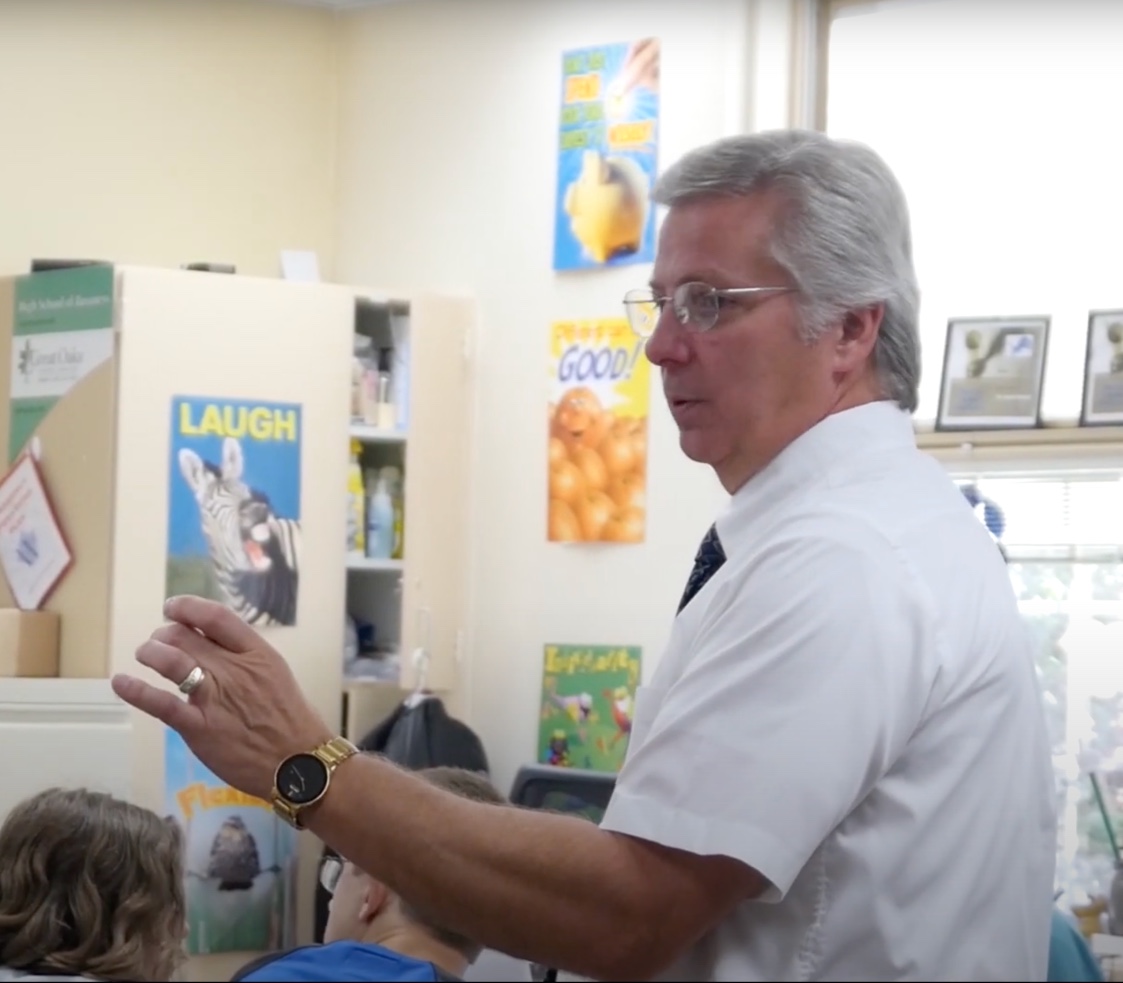As someone who works closely with both DECA and MBA Research, I’ve seen first-hand that MBA Research works hard to promote DECA values and support DECA initiatives.
DECA‘s competitive events programs are anchored by the national standards and are designed to take advantage of the MBA Research curriculum framework that recognizes the common Business Administration core standards, plus various degrees of specialization in entrepreneurship, finance, hospitality, management, and marketing.
All of MBA Research research data, along with the Consortium’s entire range of services, are available to all Career-Tech student organizations (CTSO) serving Business Administration students. That said, DECA has been the most proactive of the three most recognized CTSOs in its efforts to align with the national Business Administration curriculum standards and to utilize the Consortium’s R&D capabilities.
Most DECA competitive events utilize a variety of assessment techniques that include traditional multiple-choice exams as well as various role plays and examples of student work. All exams used by DECA are developed by MBA Research and licensed for use by DECA. District and state-level exams are available as hard copy through DECA, Inc. or may be administered online using services provided directly by MBA Research.
MBA Research instructional tools, particularly LAP modules and the Learning Center, provide strong support for students preparing to compete in DECA competitive events. Both tools, plus various MBA Research assessments, are 100% anchored by the national Business Administration standards.
MBA staff have served in various consulting roles with DECA for many years. Most notably, our Executive Vice President has served in a continuing role as an advisor to DECA’s competitive events initiatives. Conversely, DECA’s Executive Director has made similar contributions to the MBA Research programs.
NOTE: All DECA advisors in member states are eligible for member pricing on all products and services.

DECA Inc. is a 501(c)(3) not-for-profit student organization with over 163,000 members in all 50 United States, Canada, Guam, Puerto Rico and Germany. The United States Congress, the United States Department of Education and state, district and international departments of education authorize DECA’s programs.
Mission: DECA prepares emerging leaders and entrepreneurs in marketing, finance, hospitality and management in high schools and colleges around the globe.
Did you know that MBA Research creates DECA’s written exams? Here are 3 tips for DECA success!
Our new and improved DECA Checklist for Success includes resources to prepare students for DECA competition and get them to the stage!
Download DECA Checklist for Success

DECA currently uses seven different exams for its competitive events. Please keep in mind that each state makes independent decisions regarding specific uses of each exam. New comprehensive, multiple-choice exams are developed each year and are based on the most recent update of the National Standards.
MBA Research does not provide the role plays that DECA uses. Questions regarding these aspects of the competitive events should be directed to state advisors. For online testing, contact MBA Research. To order paper/pencil exams, contact National DECA.
Visit this page for the complete document of DECA Test Specifications and general information.
Performance indicators (competencies) for competitive events are used to define the parameters of the written exam and other activities that are part of the overall competition. These performance indicators are the basis of events for DECA ICDC.
These lists were compiled by MBA Research and represent its efforts to support all DECA competitive events within the overall framework of the Business Administration Curriculum Framework. Individual indicators are based on a review of prior research and on extensive review of available online and print literature – both from industry and education.
NOTE: Test items from the BA core are included in all exams.


As someone who works closely with both DECA and MBA Research, I’ve seen first-hand that MBA Research works hard to promote DECA values and support DECA initiatives.

One of the best things about DECA’s competitive events program is that we really don’t have to answer these questions. Since the events are increasingly aligned with the real world, we can legitimately claim that we’re preparing students to compete in DECA, and to compete in the real world—for a job, or a promotion, for a place in college, or for operating their own business in a very competitive environment.
Better yet, all five keys work to help students compete in many different venues!
1. Curriculum alignment
Yes, we all know that when you close the door, you teach what you want. Sometimes the decision is based on what we like or what we know best. Often, our students influence curriculum decisions. But, the bottom line is that the more closely our individual programs of study are aligned with the national standards, the better prepared our students will be.
Why? Because the standards were built through industry research. They reflect what business leaders believe is important. DECA’s events are based on these same standards. Bottom line: When you align your curriculum with the same learning outcomes expected by business and by DECA, your students win in both settings.
Tip: The national standards are available free to all marketing and business teachers.
2. In-depth instruction
With short attention spans getting shorter by the day, it’s always tempting to “keep moving.” By changing the topic of instruction every few hours (or minutes), we can sometimes keep kids from drifting too far. But the trade-off is that our students leave our classes with only cursory ideas of critical learning outcomes. They enjoy the class, but leave without the key skills that will soon be critical to their successes.
Teachers who find ways to keep students interested as they push for depth of instruction and actual student performance are almost always rewarded with more successful students. Years ago we proved the value of in-depth instruction through a series of “model programs” in some 40 high schools. It works!
Tip: We created our lesson modules (LAPs) specifically to help you reach a depth of instruction that will pay off for students. But remember, for maximum value, it’s not enough to “cover the LAP.” You really do need to demand that your students master the material.
3. Regular assessment
Frequent testing (any kind that addresses the curriculum) accomplishes several things. First, testing suggests that you’re serious about expecting learning to occur. It clearly says to students that they will be accountable for the content. Second, testing encourages students to focus on the material that matters most. And, third, it reduces the pressure of big, infrequent exams.
Again, we learned with our model programs that weekly testing — coupled with specific policies that required students to pass all tests to earn a passing grade — resulted in greatly improved performance. Even if the weekly quiz is only 5 or 10 items, it leads to more positive learning outcomes.
Tip: A critical consideration in developing a test or quiz is to be certain that the questions are congruent with the curriculum. In other words, be sure that your test items really address the content and the specific performance indicator it represents. We provide two fully congruent exams in each LAP, and we provide access to many other test items that are anchored by research-based indicators. Our DECA exams are one of many examples.
4. Emotional intelligence
Although the topic covers a lot of ground, it’s critical to your students’ successes. You may need to teach the basics, or you may simply need to reinforce basic EI concepts and skills each day in class. As students learn to behave as adults when among adults, they dramatically improve their competitiveness. Kids are kids, but it’s part of our responsibility to help them learn to interact with the business community. We already do it quite well, but with all the focus on testing, it’s easy to lose some of what we do with these soft skills.
Tip: Design projects and activities that require students to interact with the adult business community. Help them build interpersonal skills based on the expectations of those who write the check. Fortunately, these are the same people who are likely to be across the table during DECA competitive events. Visit our online store sorted by the emotional intelligence category to locate helpful resources to support your teaching.
5. Practice under pressure
All the false bravado of teen behavior aside, most of your students enter competitive situations in a high state of stress. Proving to adults that you actually know something is a tough assignment at age 16 or 17. (It’s tough enough 20 years later!) Even though you don’t know the specific details of the interview or the role play, students who’ve been through the drill will always do better on the actual day of reckoning.
Tip: Begin by having them role play with you or someone they’re comfortable with. Advance to interacting with individual students, then to demonstrations in front of the entire class. As they mature and begin to understand your expectations, move to interactions with school personnel: other teachers, counselors, and administrators. Finally, get them into the business community for more practice. They’ll still be nervous on the day of competition, but they’ll be far more confident than most of the students with whom they’ll be competing. (You may find some of our rubrics useful for evaluating student performance. Available in our store or free to member states in State’s Connection.)
6. Bonus key
Get yourself prepared to help your students. Be sure you understand the national standards, spend time in the business community, keep abreast of changes in marketing education and DECA. You teach a dynamic, ever-changing curriculum. And, you teach in a field that is undergoing radical change. Be sure you know what’s up.
Tip: Get connected via our free online newsletter. Register for our newsletter. And, be sure to plan now to join us for this year’s MBA Conclave. Your colleagues are second to none when it comes to hosting an exciting, fun, demanding professional development conference.
Jim Gleason is the former President/CEO of MBA Research. He’s a former high school marketing teacher where he advised a very active DECA chapter. His students’ successes in DECA, including many state and national awards, were driven in large part by the five keys above.
As part of either the Community Awareness Project or the Community Giving Project, DECA students will plan, organize, and implement their own project to serve the community. This workbook guides students throughout that process, from establishing project committees to developing the final presentation and report.
Download DECA Community Service Workbook
Are you thinking about transitioning to online testing? MBA Research offers comprehensive exams based on the nationally validated Business Administration standards in two formats.
The online exams are available through our website. Paper versions of the competitive events exam are available through National DECA. Although both versions use identical specifications (blueprints), the actual questions vary. Our online exams use a sophisticated software package called WebXam, which is designed for high-stakes testing.

The online assessment system offers several significant advantages:

For further information on our administration of DECA, contact MBA Research today.